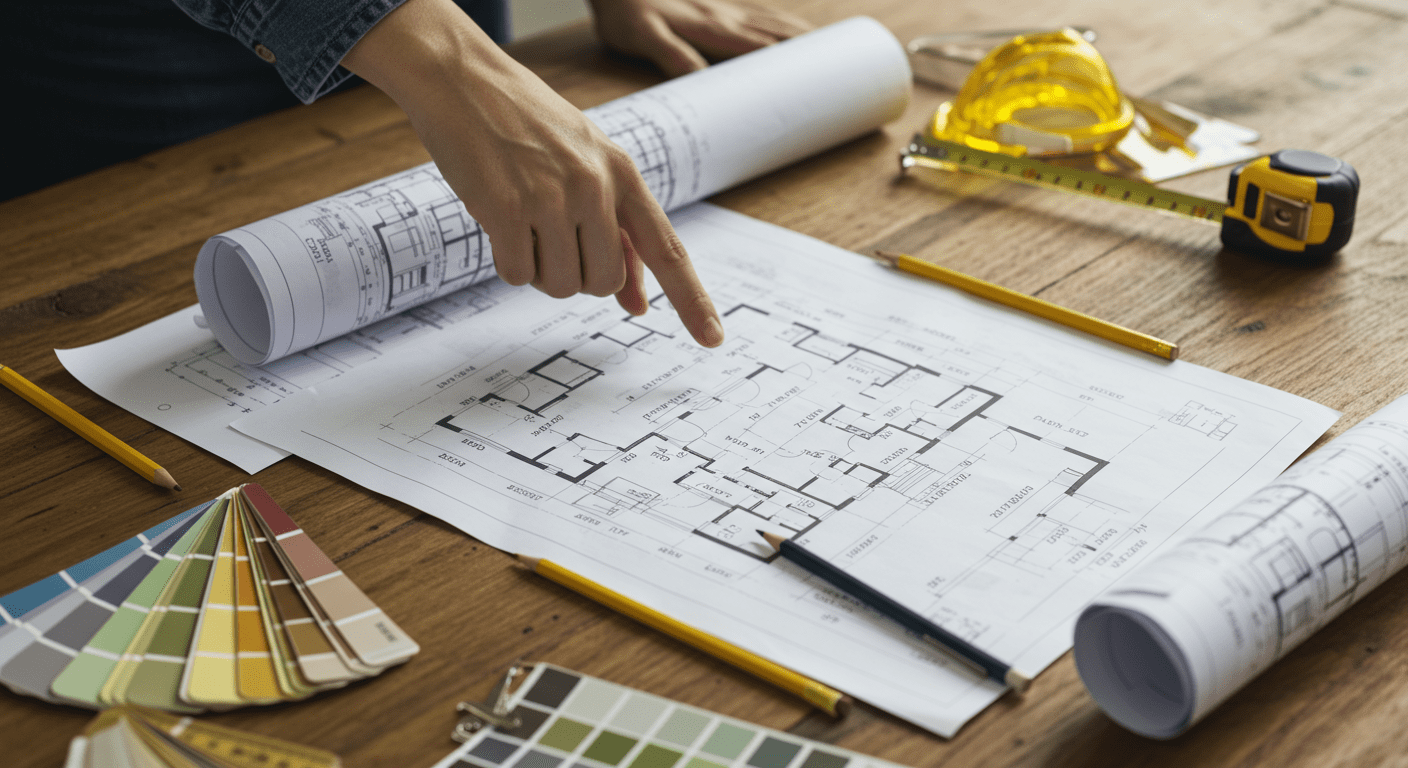Home renovation is an exciting yet complex process that can transform your living space into your dream home. Whether you’re updating a single room or undertaking a full-scale remodel, understanding the ins and outs of renovation is crucial for success. This guide will walk you through every step of the renovation journey, from planning to execution and beyond.
Understanding Home Renovation
What is Home Renovation vs. Remodeling?
While the terms “renovation” and “remodeling” are often used interchangeably, they have distinct meanings. Renovation typically involves restoring or updating existing structures, such as repainting walls, replacing flooring, or upgrading fixtures. Remodeling, on the other hand, involves altering the structure or layout of a space, such as knocking down walls or adding new rooms. Understanding this distinction can help you set clear goals for your project.
Common Misconceptions About Renovation Terminology
Many homeowners believe that renovations are always less expensive than remodeling, but this isn’t always the case. Costs depend on the scope of work, materials, and labor involved. Another misconception is that DIY projects are always cheaper. While they can save money upfront, mistakes can lead to costly repairs later. Educating yourself about these nuances can help you make informed decisions.
Planning Your Renovation Project
Setting a Realistic Budget for Renovations
Budgeting is the cornerstone of any successful renovation project. Start by determining how much you can afford to spend and allocate funds for each aspect of the project, including materials, labor, and unexpected expenses. Use online renovation cost calculators to get a rough estimate and consult with contractors for more accurate quotes. Remember, it’s better to overestimate costs than to run out of funds mid-project.
Creating a Detailed Renovation Plan: Timelines and Design
A well-thought-out plan is essential for keeping your project on track. Begin by outlining your goals and priorities. Create a timeline that includes milestones for each phase of the renovation, from demolition to final inspections. Collaborate with designers or architects to ensure your vision aligns with practical considerations like structural integrity and building codes. A detailed plan minimizes delays and ensures a smoother process.
Executing Your Renovation
Step-by-Step Guide to the Renovation Process
The renovation process can be broken down into several key steps:
- Initial Assessment: Evaluate the current state of your home and identify areas that need improvement.
- Design and Planning: Work with professionals to create a blueprint that meets your needs and complies with local regulations.
- Permits and Approvals: Obtain the necessary permits to avoid legal complications.
- Demolition: Safely remove old structures and materials.
- Construction and Installation: Implement the planned changes, from framing to finishing touches.
- Final Inspection: Ensure everything meets safety and quality standards.
Following these steps ensures a structured and efficient renovation process.
Hiring Professionals vs. DIY: What You Need to Know
Deciding between hiring professionals and tackling a project yourself depends on your skills, budget, and the complexity of the work. Professionals bring expertise and efficiency, making them ideal for large-scale or specialized tasks like electrical work or plumbing. DIY projects can be rewarding and cost-effective for simpler tasks like painting or assembling furniture. Weigh the pros and cons to make the best choice for your situation.
Post-Renovation Considerations
Final Inspections and Approvals
Once the renovation is complete, it’s crucial to conduct a thorough inspection. Check for any defects or unfinished work and address them promptly. Ensure that all changes comply with local building codes and obtain the necessary approvals. This step not only ensures safety but also protects your investment.
Maintaining Your Newly Renovated Space
Proper maintenance is key to preserving the beauty and functionality of your renovated space. Regularly clean and inspect your home to prevent wear and tear. Address minor issues promptly to avoid costly repairs down the line. Investing in high-quality materials and finishes can also reduce maintenance needs and extend the lifespan of your renovations.

Renovating your home is a significant undertaking, but with careful planning and execution, it can be a rewarding experience. Whether you’re updating a single room or transforming your entire house, this guide provides the insights and tips you need to achieve your renovation goals. For more inspiration and expert advice, check out Transform Your Space: Expert Home Improvement & Remodeling Services in Bonita Springs, FL and Transform Your Home: Stunning Whole House Renovation Before and After in Fort Myers, FL.




